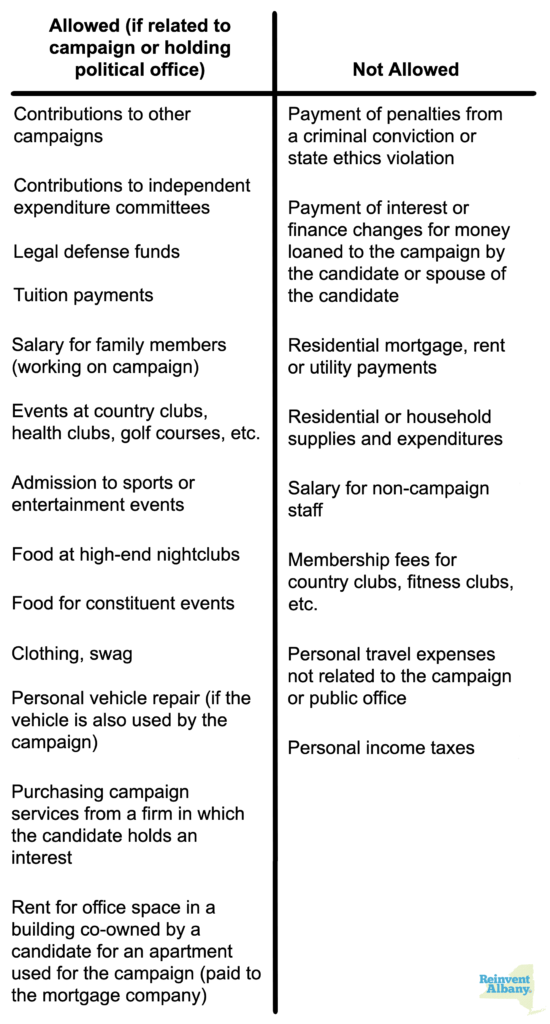What Can Cuomo Do With $18M in Campaign Contributions?
Weak campaign finance laws allow unethical use of
campaign funds by current and former officials
Andrew Cuomo is resigning as Governor, but his campaign account still has $18 million, possibly more than any former New York elected official in history.
New York has weak campaign finance laws. Soon-to-be-Ex-Governor Cuomo and other former – and current – elected officials can spend their campaign funds on things that seem to have little or nothing to do with running for office. Candidates and elected officials have legally spent campaign funds on car repairs, legal defense, and extravagant parties.
New York election law says [emphasis ours]:
Contributions received by a candidate or a political committee may be expended for any lawful purpose. Such funds shall not be converted by any person to a personal use which is unrelated to a political campaign or the holding of a public office or party position. (Election Law 14-130, Paragraph 1).
Unfortunately, the law does not sufficiently distinguish between “personal use” and “[related] to a political campaign or the holding of a public office or party position.” This leaves candidates largely free to blend the personal and political.
For example, a candidate for office may use their personal vehicle to travel to campaign events, then pay for thousands of dollars car repairs using campaign funds. Candidates often justify the expense by saying that the vehicle was used for transport to campaign events, thus necessary for the campaign. Since the expenses are only illegal if unrelated to a campaign or official duties, the law is virtually meaningless.
The weakness of the law and the general laxity of election law enforcement by state and county boards of elections means the abuse of campaign funds is rarely penalized. The State Board of Election’s Campaign Finance Handbook repeats the law verbatim without explaining what kind of spending is specifically forbidden. (The restrictions will be stronger for participants in the state’s upcoming public campaign finance program, which begins with the 2024 elections.)
Here is a chart detailing what we understand is the Board of Elections interpretation of what is legal and illegal:

